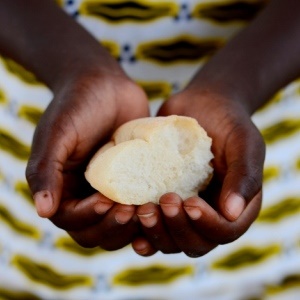
On World Hunger Day, an overview of the country’s hungry people shows that South Africa’s social grants are just not enough for indigent families facing malnutrition.
South Africa’s child support grant, introduced in 1998 with the objective of improving the wellbeing of young children, was intended to reduce malnutrition. But surveys show that there has been no shift in child malnutrition rates since the 1990s, said Dr Stephen Devereux Co-Director of the Centre for Social Protection Institute of Development Studies (IDS).
Struggle to raise children
The Food Security South Africa working paper titled “Why does malnutrition persist in South Africa despite social grants?” mentions that social grants are essential to finance food consumption and reduce hunger in poor households.
In Vosloorus informal settlements on the East Rand winter is moving in fast as temperatures have started dropping.
Women from this area spoke to Health-e News about their struggle to raise children on the R400 child support grant, and the kind of foods they can afford.
Leaning against the wall of her shack, 58-year-old Nonosisi Maseko explains: “It’s really hard but I try to make ends meet from my grandson’s grant. He is doing grade one. I pay school transport R250 per month, and then we buy food from that money. We don’t have any other income in this house.”
Rising prices of basic food items
According to Maseko, she can afford 5kg maize meal, 2l cooking oil, 10kg of potatoes and sunlight soap which they use to bath and for doing laundry.
She says she buys food so that they can eat and does not consider the nutritional value.
“What matters is to go to bed with a full stomach,” she said.
According to Stats SA’s General Household Survey, one in five South Africans skip meals and/or reduce the size of their meals at least five days each month. Rising costs of living, including rising prices of basic food items, also reduce dietary diversity in poor households, as more of their budget is allocated to staple foods such as bread and maize meal, leaving less to spend on other food groups.
Just a block away from Maseko’s house is Ntombizanele Mbuweni’s house. She is a single parent and supports a family of five from one CSG.
“We sometimes go to bed on an empty stomach, more especially towards end of the month,” she says as she opens a Tupperware full of macaroni.
“Amongst other foods I buy, this is what I buy to sustain ourselves for the month,” she says.
Grant spent on many needs
Mbuweni sometimes go to the nearby Spar to get expired rolls to feed her children. As she steps to the outside she points a giant nylon sack full of boxes.
“I also sell boxes to the nearby scrap yard where I make not more than R70. It depends on how many kilograms they are when they are weighed,” she says.
Devereux explains how the cost of living can lead to malnutrition.
“It costs over R600 per month to buy a nutritious balanced diet for a child, so the Child Support Grant is only enough for two-thirds of a healthy diet for the child, if all the grant money is spent only on food for the child,” says Devereux.
“But in reality the grant is collected by an adult in the family, usually the child’s mother, and it is spent on many needs – not only food, and on other family members, not only the child.”
Stunting higher in poor households
According to Stats SA (2012), social grants contribute 42% of household income in poor families, making grants the most important source of income, as wages contribute only 32%.
Devereux says that families that survive on social grants have to ration their consumption of basic needs, including food.
“So they often go hungry, especially at the end of the month before the grants are paid. Indicators of malnutrition, such as stunting (children that are too short for their age) are higher in poor households than richer households,” says Devereux.
The Food Security SA working paper suggests that for the country to eradicate malnutrition child grants need to be increased so that parents can buy adequate food – especially in periods of drought and high price inflation. Also, since social grants on their own are not enough, other models such as cash transfers to access to basic services such as health, education and social services also need to be considered. – Health-e News.
Image credit: iStock




 Publications
Publications
 Partners
Partners










